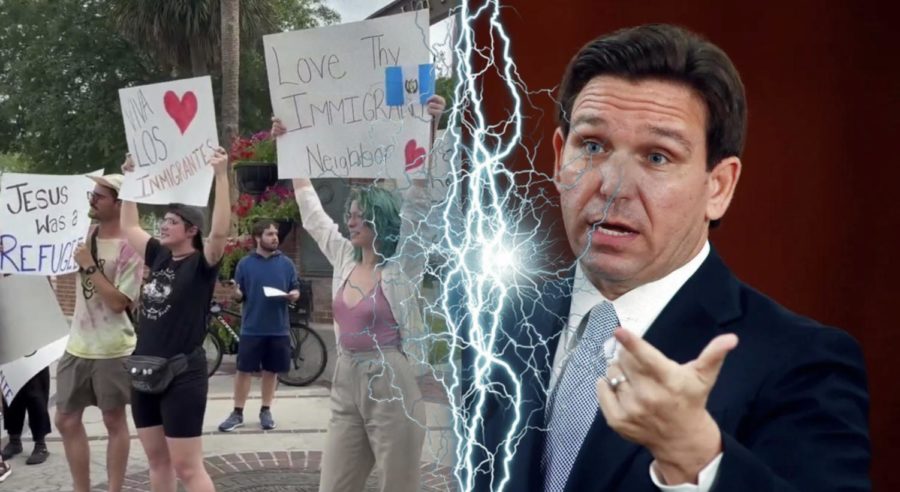Florida Bill 1718 passed
Governor of Florida Ron DeSantis approved State Bill 1718, on May 10, giving Florida “The most ambitious anti-illegal immigration laws in the country,” according to DeSantis.
The bill, which was initially filed back on March 7, is a reaction to the flood of illegal immigrants following the end of Title 42. Title 42, which ended with the national COVID-19 Public Health Emergency on May 11, allowed illegal immigrants seeking asylum to be returned over the border and denied asylum. Before, they would be screened and released into the country to await their immigration case.
Bill 1718 now makes it illegal for any government body within the state of Florida to provide funds or forms of identification documents to anyone who cannot give proof that they’re in the country legally. Furthermore, it says that driver’s licenses and permits provided exclusively to illegal immigrants in other states will no longer be accepted, barring them from driving within Florida.
The bill also requires that hospitals that accept Medicaid log the immigration status of patients on admission or registration forms, which will be put into a quarterly report to the Agency for Health Care Administration.
It has also been made much harder for illegal immigrants to find work within the state as private employers with 25 or more employees must use the E-Verify system, a government system that lets employers know the eligibility of their employees to work within the country legally. The punishments for knowingly employing an illegal immigrant are the loss of one’s employer license, and a $1,000 fee for the first violation, followed by a $2,500 fee and misdemeanor charge for any later violations. Failure to comply with the E-Verify requirement could result in a daily penalty of $1,000.
Lastly, the bill increased the severity of human smuggling in multiple cases. These include when a minor is being smuggled when the smuggler has previous convictions for the crime, and when more than five people are being smuggled.
On one side, the bill has been widely lauded by those fearing the potential economic and crime-related repercussions of what they perceive as virtually unchecked illegal immigration, as a good first step that could lead to a trend in other states.
On the other side, the bill has been met with strong criticism by those who believe it to be an overreach of government, an incentive for racial profiling, and something that will hurt the economy.
Ultimately the bill, now a law, will not take effect until July 1, 2023, and as such the impacts, whether positive or negative, can only remain speculative for now.
Your donation will support the student journalists of Fuquay-Varina High School. Your contribution will allow us to purchase equipment and cover our annual website hosting costs.








































